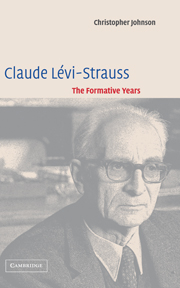Book contents
4 - Structuralism and humanism
Published online by Cambridge University Press: 05 June 2012
Summary
L'ethnologie n'est ni une science à part, ni une science neuve: c'est la forme la plus ancienne et la plus générale de ce que nous désignons du nom d'humanisme.
(Ethnology is neither a separate science, nor a new one. It is the most ancient, most general form of what we designate by the name of humanism.)We have seen that one of the essential conditions of structuralism's claim to scientific interest is the restriction of its field of analysis, the reduction of the traditional problems of religious anthropology to an ‘intellectualist psychology’, as Lévi-Strauss called it, whose privileged objects are classificatory systems and myth. This entailed the relative marginalization of subjects such as ritual or sacrifice, and in general the reduction of the individual or collective experience of religion to their cognitive dimension. This ‘desacralization’ of the object of religious anthropology is in some respects symptomatic of the general development of the discipline in the twentieth century, but in Lévi-Strauss, it could be said, this tendency is developed to the extreme. For Lévi-Strauss, totemism is not a religion, or a part of religion, but a mode of intellection; the sacred is more a function of the human mind's demand for order and coherence than a spontaneous experience of the transcendent.
- Type
- Chapter
- Information
- Claude Lévi-StraussThe Formative Years, pp. 104 - 147Publisher: Cambridge University PressPrint publication year: 2003



